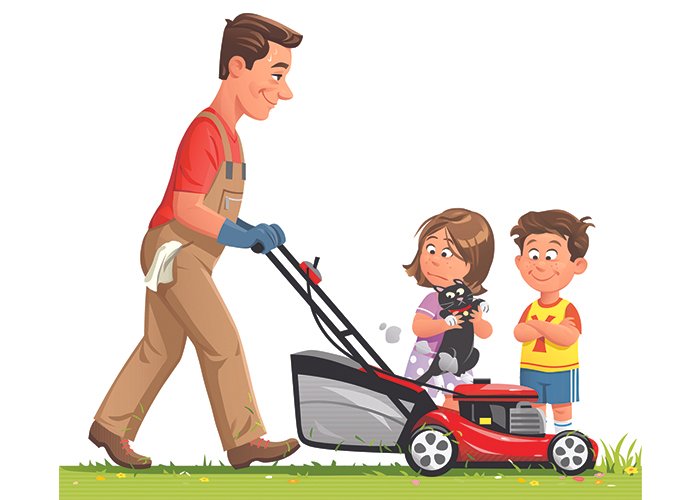
<!DOCTYPE html PUBLIC "-//W3C//DTD HTML 4.0 Transitional//EN" "http://www.w3.org/TR/REC-html40/loose.dtd“>
By Dean Beckloff, Ph.D. | Contributor
The Struggle to Find Balance in Parenting
In their deep love for their children, parents can sometimes go overboard in their efforts to support them on their journey to success. Conversely, some parents take a completely hands-off approach. Striking the right balance is crucial if we hope to nurture healthy, independent children who grow into self-sufficient adults.
Having worked with families for over 35 years, I have encountered countless remarkable and inspiring parents. Their dedication and commitment to their children are truly remarkable. Parents often go to great lengths, sparing no expense, to ensure their children receive the best possible support. Their love is profound, and it is something most parents cannot ignore. I recently enjoyed a long weekend with my daughter, her husband, and their three kids, and the feeling of longing afterward was significant.
The Pitfalls of Over-Involvement
However, this intense devotion can lead some parents to make the mistake of doing too much for their children. A useful guideline for parenting is the principle of not doing for children what they can do for themselves. Following this advice can help us foster a healthy environment.
We are all familiar with the term “helicopter parent,” someone who hovers excessively over their child, which can create numerous challenges for the child over time. A newer concept gaining attention is that of the “lawnmower parent,” who proactively eliminates any obstacles in their child’s way, preventing them from encountering problems on their own. Rather than hovering, lawnmower parents create a clear path for their child before they begin to navigate life, essentially removing any hurdles in advance.
Recognizing the Issues with Over-Parenting
Is this an issue? What parent hasn’t considered potential consequences for their teenager’s choices, such as driving late at night or attending parties? We’ve all tried to understand the possible outcomes of a teen’s decisions and communicated those concerns to our teens. The key difference lies in guiding them versus taking over.
Evaluating Your Parenting Approach
If you find yourself overwhelmed with the feeling that you are handling everything for your child, you might be. It’s possible that your frustrations stem from overextending yourself in an effort to create a perfect environment for them. Remember the rule: don’t do for your children what they are capable of doing themselves. This can be especially challenging when they face learning disabilities or attention issues. The danger is when normal assistance turns into doing the tasks for them, which ultimately does not benefit them and may leave them unprepared for college and beyond.
Encouraging Independence in Children
Parenting involves gradually giving way to increased responsibility for your child. It’s about encouraging independence, such as allowing them to pour their own milk, even if it means a few spills. This principle is crucial for raising teens who can manage small setbacks, like forgetting an important paper at home, without relying on parental intervention.
Should you take over phone calls with teachers or order for your shy teenager at restaurants? Should you set up their social arrangements, fearing they won’t do it themselves? When they run late, should you accompany them to alleviate their embarrassment? If they face social issues, should you reach out to other parents on their behalf?
The Continuous Challenge of Parenting Decisions
As parents, we are often faced with these choices. Remember the rule: don’t do for children what they can do for themselves. They may not handle situations as proficiently as you would, but unless they attempt to handle things independently, they won’t learn and grow. The key may be to provide encouragement and support from behind the scenes while trusting them to navigate challenges on their own.
Key Points:
Let the child do it. If they can get the milk, they should. Even if it means they choose not to get it, respect their decision-making, even if it’s not ideal.
It’s always okay to give guidance. You can suggest and help your teen think it through. If they don’t want your input, it’s important to let them be. Your compassionate reflection can be valuable.
It’s always good to encourage. Affirm your teen and express confidence in them, something they will appreciate regardless of their age.
Think carefully and seek advice. When tempted to intervene, consult a trusted friend. Stepping in teaches your child they are incapable and dependent, potentially hindering their ability to face life’s challenges.
For School-Age Children: Don’t place orders for them in restaurants; don’t speak on their behalf in uncomfortable situations; don’t manage all of their playdate arrangements. Involve them to foster independence and support their success.
For Teens: Insist that they handle all communications with teachers regarding grades, make-up work, and absence notifications. Understanding their weaknesses doesn’t excuse them from making initial attempts. You can provide assistance afterward if needed.
Follow the rule: don’t do for children what they can do for themselves. Maintaining this principle from childhood through adolescence will help them successfully transition into adulthood, supported by your unwavering love and affirmation.
Editor’s Note: Dr. Dean Beckloff is a pediatric therapist, school counselor, and trainer who specializes in helping children and families navigate challenges such as divorce. He is the founder of the Beckloff Behavioral Center in Dallas. For questions, comments, or consultations, Dr. Beckloff can be reached at www.DrBeckloff.com or 972.250.1700.






